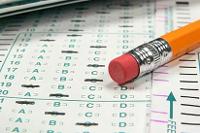In today’s fast-paced world, education has become essential to an individual’s life. It is no secret that a college education opens numerous opportunities, but it can also be costly. Luckily, there is a way for high school students to gain an advantage in their future endeavors while saving money and time.
Taking college courses online before graduating from high school is an excellent option that has recently gained popularity. Let’s discuss why someone should take college courses online before high school graduation:
- Get A Head Start on Your College Education
One of the most significant advantages of taking college courses online before graduating from high school is that it allows you to get a head start on your college education. You can earn college credits that transfer toward your degree program by taking online college courses. With some college credits already under your belt, you can graduate faster and save money on tuition and other expenses. Taking college courses online before graduating from high school and getting a head start also allows students more time to take internships during their college and jumpstart their careers. Plus, some students who take college courses online before graduating from high school have maintained a specific grade point average to preserve scholarships or other financial assistance.
- Greater Flexibility and Convenience
One of the primary benefits of taking college courses online is the flexibility that comes with it. Online learning offers greater flexibility and convenience than traditional classroom-based education. High school students can work at their own pace and choose a schedule that works for them. This flexibility allows students to balance their academic workload with extracurricular activities, family commitments, and part-time jobs. Additionally, online courses can be accessed from anywhere, making it easier for students to fit their studies into their busy schedules.
- Save More Time and Money (Lower Costs)
Taking college courses online before graduating high school can save students time and money. Online courses typically have lower tuition fees than their classroom-based counterparts, and students can save money on transportation, accommodation, and other expenses associated with attending college in person. Additionally, online courses can be completed faster than traditional courses, allowing students to complete their college education faster and enter the workforce sooner.
- Get Exposed to College-Level Curriculum
Taking college courses online before graduating from high school can expose students to college-level curriculum and coursework. This can help students better understand what college-level coursework entails, which can help them prepare for the rigor of college coursework. This advantage can also help students decide if a particular field of study is the right choice before entering college.
- Develop Essential Skills
Taking college courses online before graduating high school can help students develop essential skills beneficial for their future careers. Online learning requires self-discipline, time management, and effective communication skills. Employers highly value these skills, which can be developed through online learning. Students can develop these skills early on by taking college courses online before graduating from high school, giving them a competitive edge in the workforce.
- Explore Career Options and Different Fields
Taking college courses online before graduating high school can help students explore different career options. Online courses offer various subjects and topics, allowing students to discover their interests and passions. This can help students make informed decisions about their future careers and choose a major that aligns with their goals. This can also help you broaden your horizons and discover new passions.
- Improve College Admissions Chances
Taking college courses online before graduating from high school can also improve students’ chances of getting accepted into their preferred college or university. Admissions committees look for students who have demonstrated academic excellence and a commitment to learning. By taking college courses online and earning college credit, students can demonstrate their academic abilities and show that they are ready for college-level coursework. This can help them stand out from other applicants and increase their chances of acceptance into their dream school.
- Build Important Connections
Taking college courses online before graduating from high school can also help you build important connections with other students and professionals in your field of interest. Online courses often include discussion forums, group projects, and other collaborative learning activities, which can help you connect with other students who share your interests and goals.
- Access To Top Universities and Professors
Taking college courses online before graduating from high school exposes you to online learning platforms that often partner with top universities and professors to offer high-quality courses and learning materials. This means you can access world-class education from the comfort of your home, regardless of where you live or what school you attend.
- Build A Robust College Application
Taking college courses online before graduating high school can also help you build a strong college application. Colleges and universities look for students who have challenged themselves academically and demonstrated a commitment to learning. By taking online college courses, you can show colleges and universities that you are a motivated and dedicated student eager to learn and succeed.
Taking college courses online before graduating from high school is an excellent opportunity for students to get ahead, save time and money, develop essential skills, explore different career options, improve their college admissions chances, and so much more. Online learning offers a flexible and affordable way for students to earn college credits and gain valuable experience, setting them up for future success.
Written by: Justin Hart

